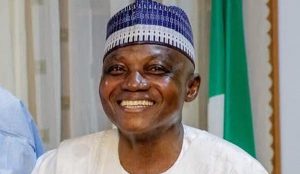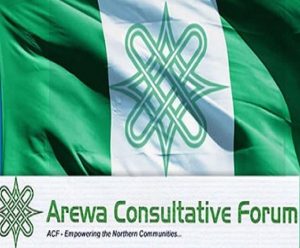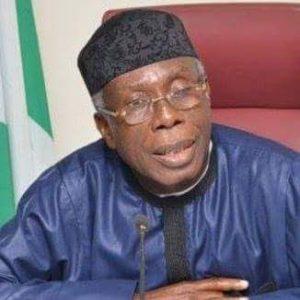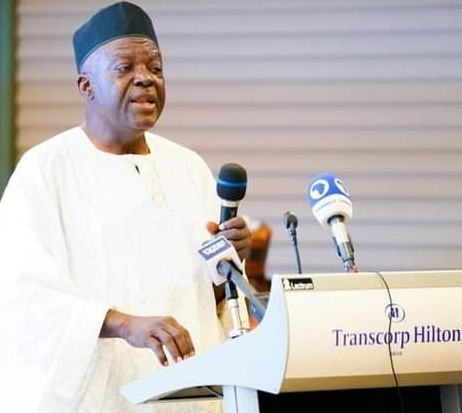By Adagbo ONOJA

Yawe made his own contribution here
Each time Intervention decides to stop featuring news of deaths, such is always when someone close to it dies. This is the case of the late Emmanuel Yawe who reportedly died in his sleep the day before. He is someone we must all mourn because, tracking his life gives us a good sense of the progression of Nigeria from relative beauty in the 1980s to the present ugliness. That makes him worth situating in terms of the contradiction he was – a symbol of multiculturalism who came in the period of persistent worsening of crisis and degeneration into the current anomie, all within the past 40 years.
It was when he was the News Editor and later, the Group News Editor at the Kano State Government owned Triumph Publishing Company in the late 1980s that one operated closely with him, including living briefly in his Boys Quarter when one was also a reporter with the newspaper. Although it turned out a brief interaction, it remained a life-long one.
Before Kano, he had worked as a Staff Writer with the New Nigerian on Sunday in the defunct New Nigerian Newspapers, (NNN). He went there after serving as Chief Press Secretary to the short-lived governorship of Alhaji Bamanga Tukur in the old Adamawa State. People were no less conscious of their Christian, Muslim, minorities’ identity in those days but it wasn’t that bad then. So, he was considered good fit for the job by Bamanga Tukur. Unfortunately, the December 1983 coup aborted his unfolding.

Mallam Garba Shehu, ex-Features Editor and MD, Triumph Publishing Company
The appointment of Mallam Abba Dabo as the Managing Director of the Triumph Publishing Company in the aftermath of the 1985 coup was Yawe’s appointment in that paper, Abba Dabo having been his Editor in the NNN. Although the overly radical phase of the Triumph group of newspapers was gradually giving way to a less ideologically explicit newspaper, old orders die hard. And so did Triumph find itself as a peaceful mix of more melted professionals such as Kabir Abdullahi Yusuf; the balancers, (Hajiya Bilkisu Yusuf, Ujudud Sharif, Emmanuel Yawe); the ideological go-getters (Kabir Gwangwazo, for instance); the remnants of the radicals, (Aminu Ibrahim, Sanni Zorro and myself) and the ‘Islam only’ breed symbolized unmistakably by Alhaji Garba Durbunde. There was a loner. He is Mallam Garba Shehu who tended to follow Abba Dabo in terms of being more cosmopolitan and above strict tendency politics. In spite of everything, it is a credit that cannot be denied him because when he was leaving the Triumph to become the Corporate Affairs manager or something like that at the now deceased Aluminium Smelting Company, (ASCON) at Ikot-Abasi in Akwa Ibom State, he did something in tandem with that image: he picked two persons, a Hausa-Fulani and an Igbo and went with them. Those ones were lucky but not some others whom he blocked from Atiku Abubakar’s scholarship when he was Atiku’s media man.
 Anyway, back to Triumph, even the paper’s post-radical phase after the Abubakar Rimi regime from 1979 – 1983 was not a reversal of that radicalism. Rather, it was a transition from radicalism to a workable amalgam of multi-cultural and tendency differences at a time of rising ethno-religious and regional consciousness under the Babangida regime. For instance, in spite of that rising consciousness, the statement issued by the Bala Usman group of scholars at the Ahmadu Bello University rejecting Nigerian membership of the OIC was still carried as the front lead of the daily edition in 1987.
Anyway, back to Triumph, even the paper’s post-radical phase after the Abubakar Rimi regime from 1979 – 1983 was not a reversal of that radicalism. Rather, it was a transition from radicalism to a workable amalgam of multi-cultural and tendency differences at a time of rising ethno-religious and regional consciousness under the Babangida regime. For instance, in spite of that rising consciousness, the statement issued by the Bala Usman group of scholars at the Ahmadu Bello University rejecting Nigerian membership of the OIC was still carried as the front lead of the daily edition in 1987.
The tendency differences did come into the open but it was the one between the remnants of the Marxists or the radicals and their counterpart that did so. It happened after Abba Dabo had already moved into politics and a new Managing Director was in place. Kabir Abdullahi Yusuf had equally left to work in Abidina Coomasie’s Today newspaper in Kaduna, leaving with Chidi Nganga, a brilliant University of Jos graduate in Literature who has, however, made himself untraceable today. It was under this atmosphere that the conservatives dislodged the radicals, sending Muhammadu Sani Zorro to Sokoto as a correspondent, Adagbo Onoja to Lagos as Airport Correspondent and transferring Aminu Ibrahim from the newsroom entirely to the Marketing Department. Key members of the ‘conservatives’ didn’t stay either. Ujudud Sharif who wrote an abrasive but popular weekly column in the Sunday Triumph left to work in the bank. We ended up meeting in Lagos and again in Daily Trust as Editorial Board members before dispersing once again. Ujudud who is late now was, along with his Pharmacist wife, one of the most helpful pair to me ahead of my departure to the UK in 2013. Hajiya Bilkisu was grabbed and made the Editor of the New Nigerian, the first time a woman would get that far in the history of the paper. Emmanuel Yawe also left. I cannot remember to where but, for a long time, he was editing Crystal, a monthly magazine from what used to be known as Heritage Press in Abuja.

Chief Audu Ogbeh, Chairman of ACF
In spite of what his tendency did to my tendency in Triumph, we maintained good relationship. For instance, he was one of those consulted over Intervention and to which he responded generously. It was also when he was planning a similar online newspaper but we had two discussion sessions, one in the house of a common friend near Agura Hotel in May 2016.
I wasn’t surprised in hearing his name being announced as spokesperson for the Arewa Consultative Forum, (ACF) in 2020 although I kept wondering what he might have hoped to achieve by taking the job, given the unspeakable degree of fragmentation, suspicion and mutual mistrust among those who used to be known as northerners in Nigeria. He must have been among the few who believe that it is still possible to work through the contradictions and keep the situation from escalating further. If that is true, then we must count him as a man of peace because fragmentation in the North has reached a level where any and everything is read as either in support of one side or an attack on the other. Any iota of balance is not only impossible but risky. Yet, in a deterritorialised world, violence is the most all-consuming act of waste. There is thus an act of courage in his attempt to be part of efforts at searching for a common ground in the many enemy images of each other among Northern Christians and Muslims in the past decade or so.
Emmanuel Yawe would be missed by his family but even more so by journalism, the Middle Belt, Northern Nigeria and Nigeria. May God grant him eternal rest!




























